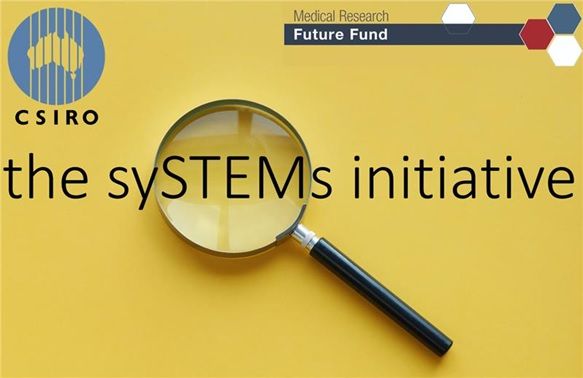Our 'sySTEMs initiative' is a play on words: systems biology + stem cells. We have been recently awarded $1M by the MRFF, with the CSIRO contributing another $0.7M. Why? Because vaccines cannot prevent all COVID-19 infections, and with new SARS-CoV-2 variants of concern emerging, there is an urgent need for rapid screening of FDA/TGA approved drugs to identify those that inhibit viral replication, reduce COVID-19 symptoms, and prevent long-term sequalae.
A great strategy to get to safe, effective and affordable COVID-19 treatments quickly is to repurpose drugs already approved for other diseases. Repurposed compounds can be expedited to Phase 2-3 clinical trials if robust preclinical efficacy data were available. Unfortunately COVID-19 animal models fail to recapitulate the features of human disease; they are also expensive, time-consuming and unsuited for high-throughput screening.
To overcome this, we need rapid, high-throughput drug screening in relevant tissues grown from 'stem cells'. We also need to improve the readouts, reproducibility and clinical correlates of such stem cell-derived models through systems biology and machine learning approaches. Let me briefly elaborate on this. We will be developing a screening panel of human stem cell-derived, clinically-relevant (respiratory tract, lung alveolar, cardiac, etc.) tissue models, and improve their reproducibility through our Manufacturing capabilities in automation, standardisation and quality control. To get better readouts, we shall be using a multi-omics approach (transcriptomics, proteomics, lipidomics, metabolomics) to evaluate the biochemical utility of lead compounds. This will be overseen by our Culture, Manufacturing, Infection & Analysis Committee.
What will we evaluate them against? SARS-CoV-2 of course! We were one of the first to predict how this virus would evolve, and to show that the D614G mutation won't affect vaccines. Recently, we also demonstrated that the current variants of concern could affect first-generation vaccines but not one of the newer ones. So we plan to evaluate these repurposed drug candidates against the most appropriate variants of concern.
Our Drug Selection Committee will shortlist approximately 20 promising candidates, from which we will select three for screening. We shall apply multi-variate and machine learning methods to identify useful signatures of ex vivo disease progression and drug efficacy, and correlate these signatures with existing and emerging systems biology datasets from COVID-19 ferret studies and human clinical samples. Within a year, we hope to establish a well-characterised platform for rapid delivery of preclinical data acceptable to regulators, and enable high-throughput screening of new and repurposed treatments for COVID-19 as well as future 'Disease X'.
Who are in our Project Team?
Chief Investigators A-J: Professor Seshadri Vasan, Dr Nathan Godde, Dr Carmel O'Brien, Dr Nagendrakumar Singanallur, A/Professor David Beale, Professor Eugene Athan, Dr Kim Blasdell, Dr Rohitash Chandra, Dr Laurence Wilson and Dr Anu Kumar.
Associate Investigators A-J: Dr Vinod Sundaramoorthy, Professor Elizabeth Vincan, Professor Kanta Subbarao, Dr Michael Kuiper, Professor Enzo Palombo, A/Professor Darren Creek, A/Professor Natalie Trevaskis, A/Professor James Hudson, A/Professor S. Murugesan, and Ms Moana Simpson.
Team: Dr Vinti Agarwal, Ms Chaarvi Bansal, Mr Harshan Baskar, Dr Tom Blau, Ms Kathie Burkett, Ms Simran Chahal, Mr Krishnil Chand, Mr Doug Chandler, Ms Simone Clayton, Dr Darcie Cooper, Professor Matt Cooper, Professor Trevor Drew, Ms Sarah Goldie, Ms Adrienne Gregg, Dr Katie Hillyer, Mr Hardik Ashish Jain, Dr Petrus Jansen van Vuren, Dr Avinash Karpe, Ms Steph Keating, Professor Cark Kirkpatrick, Dr Jian-Wei Liu, Dr Jasmina Luczo, Dr Christopher MacRaild, Dr Alexander McAuley, Mr Faheem, Dr Jenny O'Connell, Dr Amanda Peterson (alumna), Mr Shane Riddell, Dr Rohan Shah, Mr Chirag Singhal, Dr Ian Styles, Dr Mary Tachedjian, Ms Lee Trinidad, Mr MD Muzaffar-ur- Rehman, Mr Aditya Vashi, Ms Chandana Venkatadri (alumna), and Dr John Noel Viana.
(names of colleagues external to the CSIRO are italicised).



